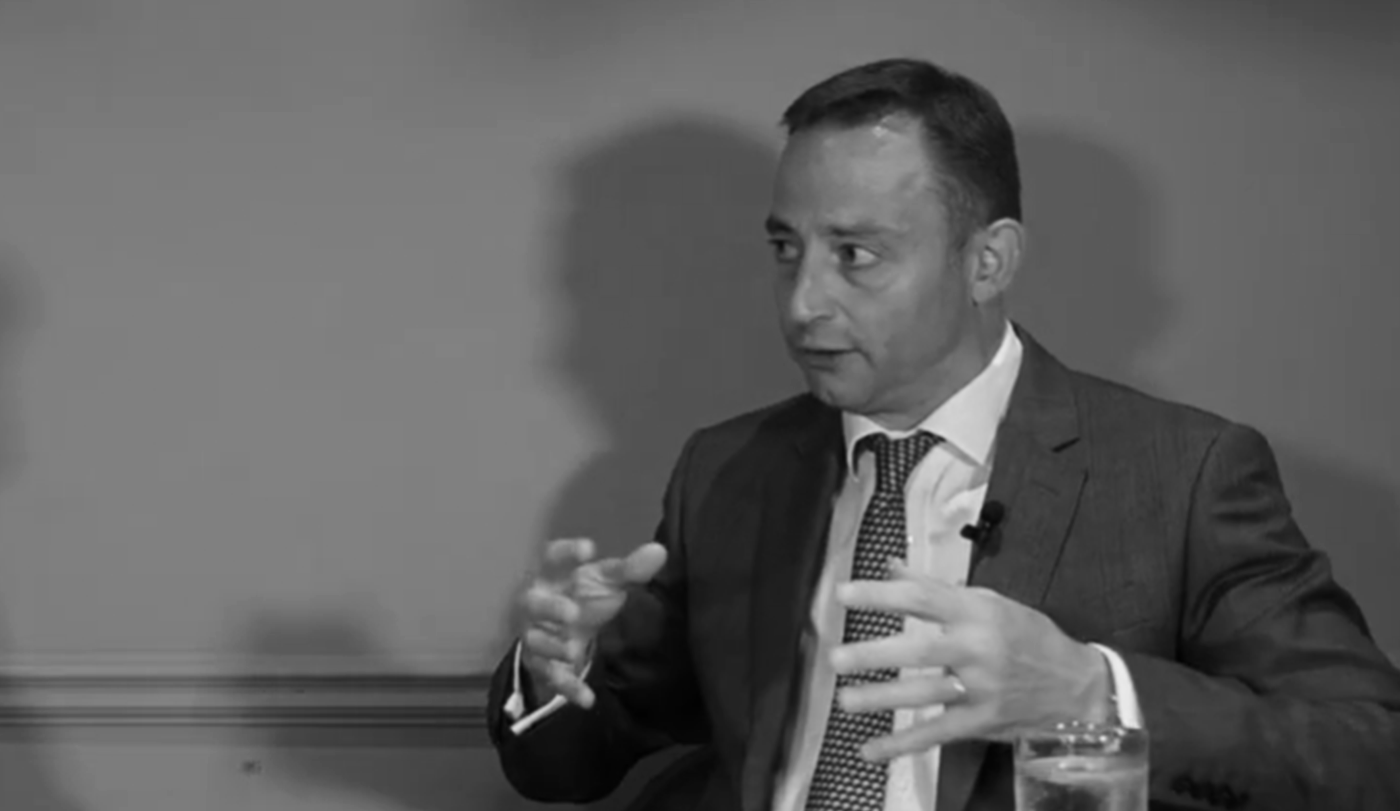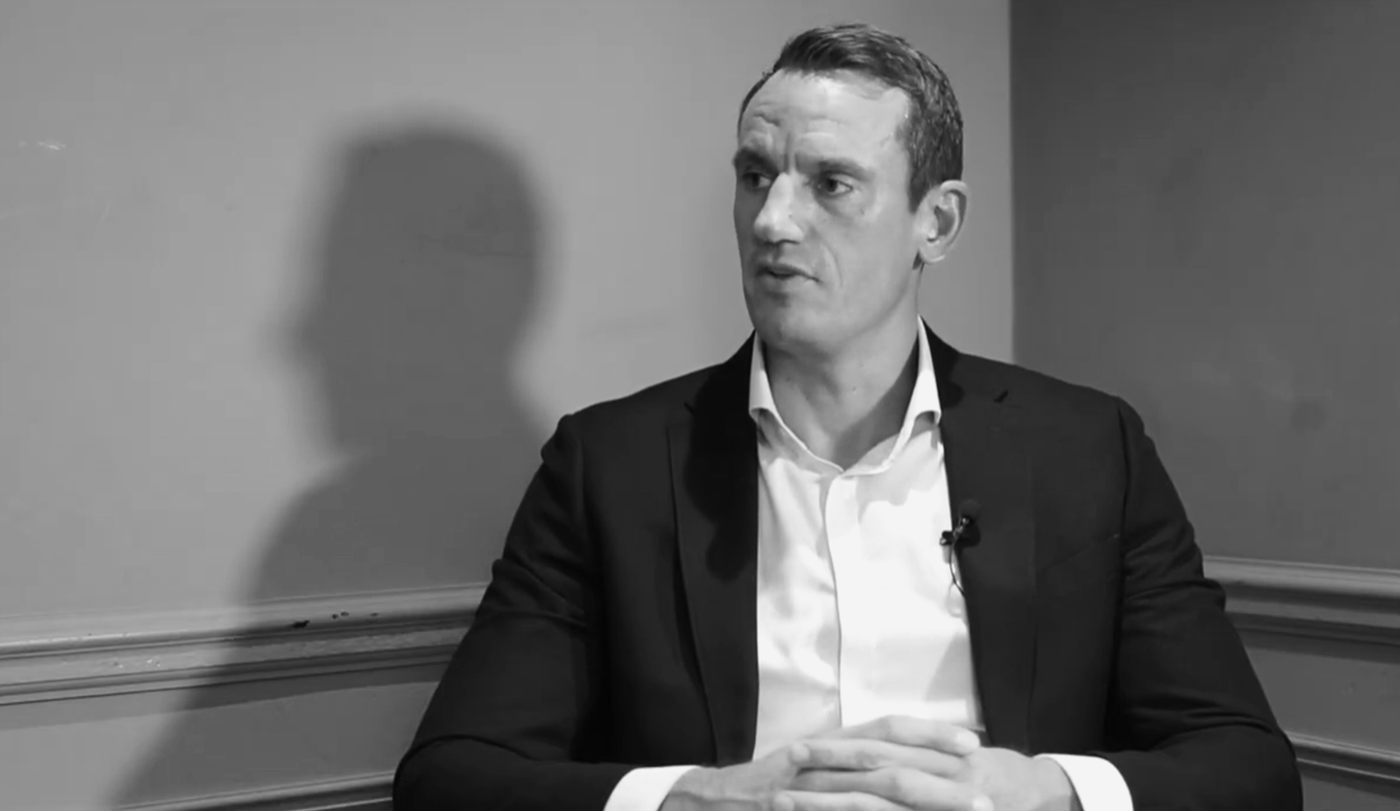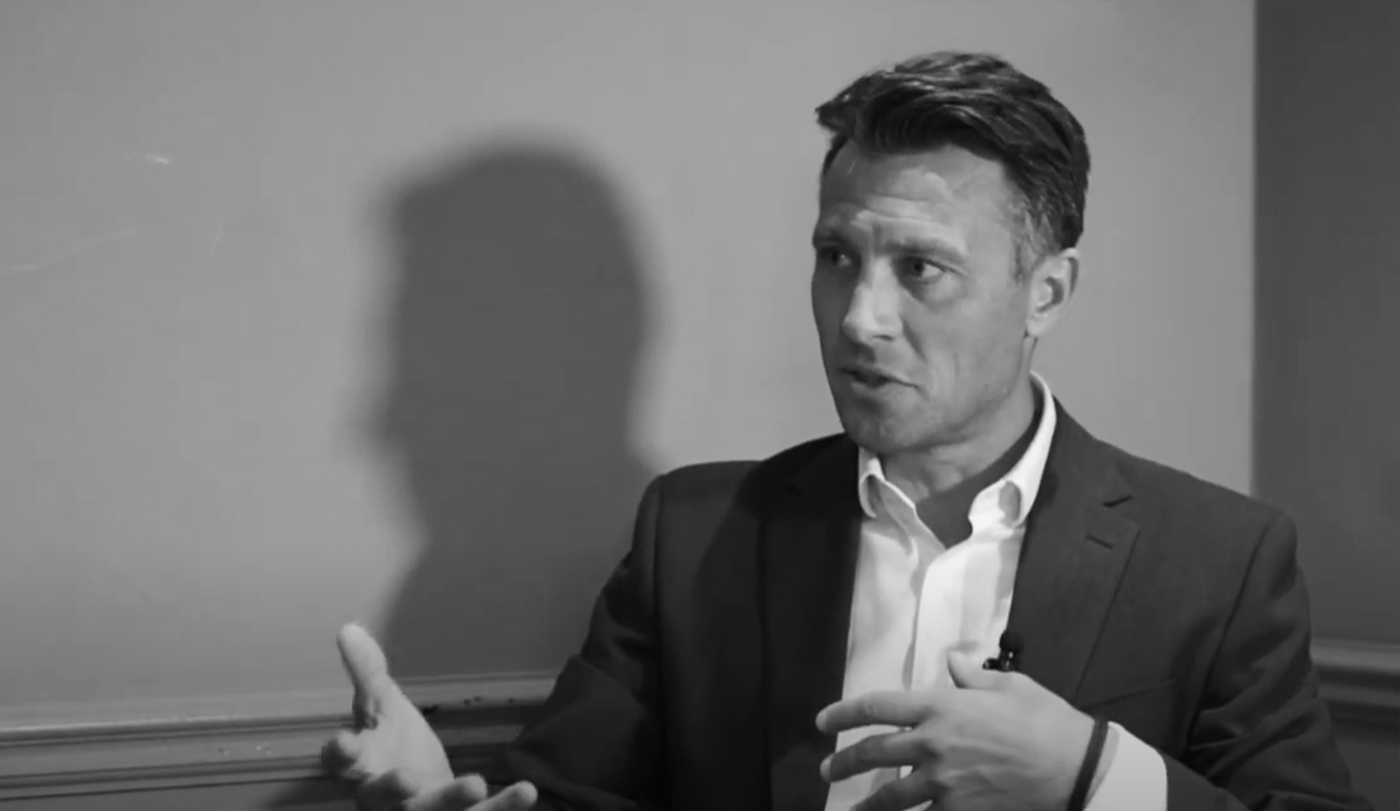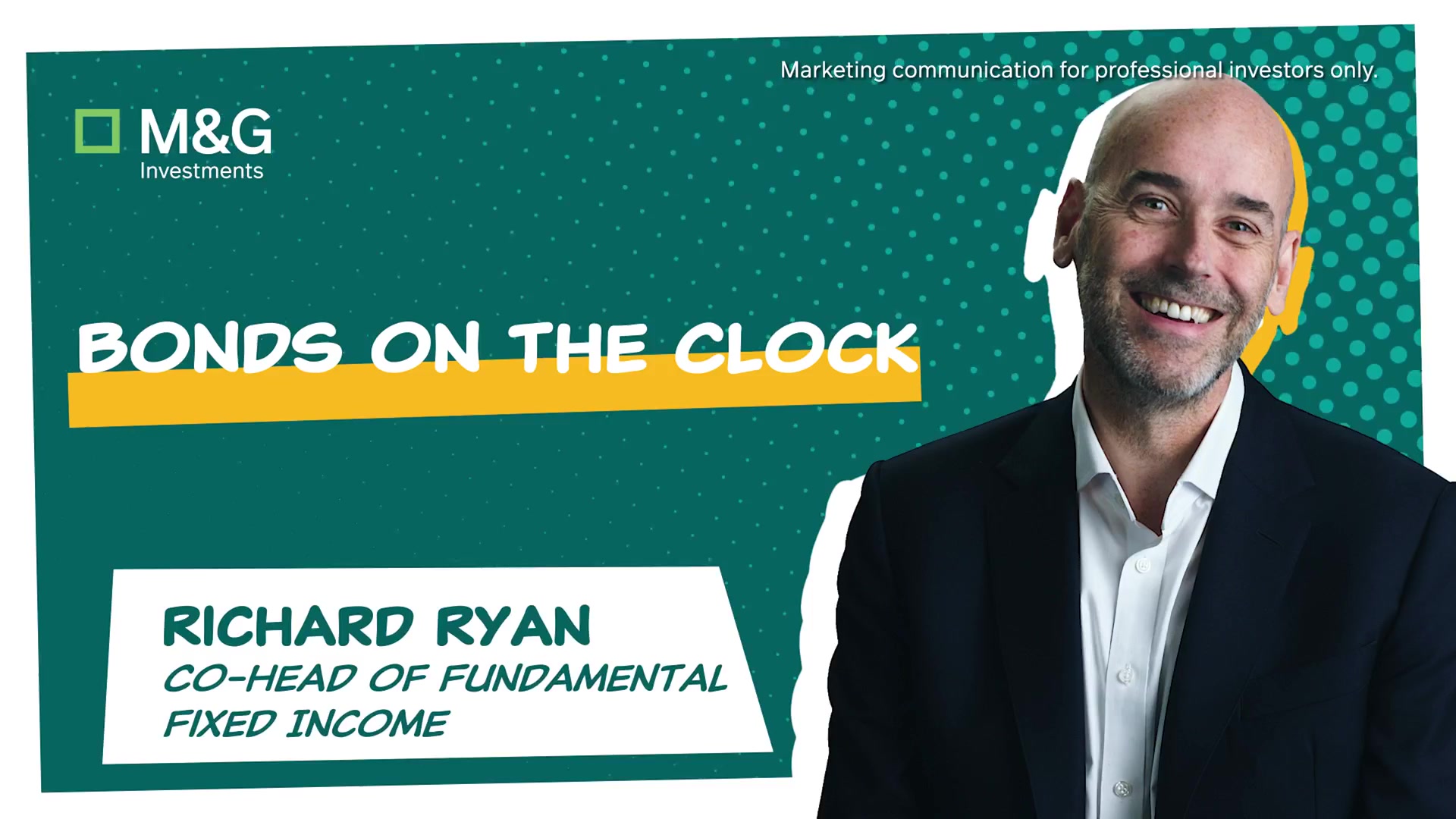On the attractions of inquisitiveness, transparency and, above all, consistency of process
In our regular video series, we interview the wealth sector’s key decision-makers to discover how they think about life, both within the world of investment and beyond it; what brought them into the business and what keeps them here; and what makes them and their companies tick
For Sam Buckingham, investment consultant at Buckingham Research – which he set up at the start of the year – the quality that is always front of mind when assessing the merits of any portfolio holding is consistency.
Talking with Wealthwise editorial director Julian Marr in the above video, he elaborates: “And that is throughout the whole selection process. So when I start off with quant screens, for example, what I am looking for is absolute consistency in the return profile – not just a snapshot quant screen, but drilling down further into rolling-return metrics.
“And then that obviously feeds into the qualitative aspects. When you have fund management meetings and are understanding the philosophy behind the process, I want that consistently feeding through into the process, which should then consistently feed through into the holdings and performance and so on.”
Full transparency
Conversely, what does Buckingham see as potential red flags? “The one that probably flashes the reddest – if that is a phrase! – relates to knowing investment managers and fund managers are always going to struggle in certain periods and they are inevitably going to have periods of underperformance, relative to where you would expect,” he replies.
“In those periods, then, what you really want is full transparency in order to be able understand what has been driving that underperformance and what plans they have in place going forward. And certainly a red flag for me is when there isn’t that transparency around those areas – because that either says to me they are not sure in themselves, or they are potentially hiding something.”
As for the most important and most overrated qualities for being a successful investor, Buckingham picks out – respectively and, in the latter case perhaps unexpectedly – inquisitiveness and ‘years of experience’.
We live in a world of headlines where it is easy enough to follow broadly what is going on but it is really about asking questions like, OK, why did that happen? And then also, So what happens next?”
“Most important is just being very inquisitive,” he explains. “We live in a world of headlines where it is easy enough to follow broadly what is going on but it is really about asking questions like, OK, why did that happen? And then also, So what happens next? That mindset of wanting to drill a bit further into things really makes you stand out.
“As for most overrated, I would say – potentially controversially – the number of years’ experience. I am not denying experience is very important but, in terms of being overrated, I think that might possibly be the case. It is often seen as a linear relationship where just your number of years’ experience sort of equates to your quality as an investment professional. Yet there are a lot of other attributes that feed into that – not the least being that inquisitive nature and really utilising those years of experience in a productive way.”
Starting valuations
Asked what most excites him about the current investment outlook – and what gives him pause for thought – he starts with the latter, replying. “Thinking longer term, the thing that causes me most concern is valuations – and US equity valuations more than anything.
“That is because we have seen this increasing shift in the wealth management space to globally constructed portfolios at a time when US equity valuations are at the extreme – and, as we know, the best predictor of long-term returns is starting valuations and, longer term, they don’t indicate especially attractive returns going forward. That dynamic is a bit of a concern.
“On the more positive side – and again thinking longer term – fixed income as an asset class is almost the opposite of the US equity valuation story as much higher starting yields at the moment imply much stronger forward returns in fixed income. I would say the role fixed income can play in portfolios is now a very useful tool for multi-asset investors to be able to draw on.”
A full transcript of this episode can be found after this box while you can view the whole video by clicking on the picture above. To jump to a specific question, just click on the relevant timecode:
00.00: What excites you about the current investment outlook? What worries you?
02.05: What do you most look for in an individual investment? What constitute ‘red flags’?
03.54: Do you see AI as a threat or an opportunity to professional investors – or both?
05.00: What was your path into investment – and, if you hadn’t taken it, what do you think you would be doing now?
07.43: What is the biggest investment mistake you are prepared to admit to – and what did you learn from it
09.08: What are the most important – and the most overrated – qualities for being a successful investor?
10.50: And what qualities drive a successful wealth management business?
11.51: What are your best and worst-case scenarios for the future of wealth in the UK?
14.07: Two ‘Choice Words’ recommendations, please – one a book; one a free choice?
Transcript of ‘Choice Words’ Episode 11:
Sam Buckingham, with Julian Marr
JM: Well, hello and welcome to the latest in our series of ‘Choice Words’ videos where we get to talk to some of the key decision-makers in the world of fund research and fund selection and find out what makes them and their companies tick. I am Julian Marr, editorial director of Wealthwise, and today I am delighted to be talking to Sam Buckingham, investment consultant at the newly-formed Buckingham Research – and I am sure we will get onto that in a minute. Hello, Sam.
SB: Hello. Thanks for having me.
JM: An absolute pleasure. As I say, we will get onto your freshly-formed business very shortly but let’s kick off with my usual first question – what excites you about the current investment outlook and what gives you cause for concern?
SB: I usually start off with causes for concern – I usually start off the negatives! And I would say, thinking longer term, the thing that causes me most concern is valuations – and US equity valuations more than anything.
And that is really because we have seen this increasing shift to globally constructed portfolios in the wealth management space at a time when US equity valuations are at the extreme – and, as we know, the best predictor of long-term returns is starting valuations, and they don’t indicate especially attractive returns going forward, longer term. So I think that dynamic is a bit of a concern longer term – and time will tell on that one.
On the more positive side of things and what I am more motivated by, not a lot of things are massively attractive from an investment perspective at the moment. What I would say, though, is actually fixed income as an asset class, thinking longer term, is almost the opposite of the US equity valuation story – much higher starting yields at the moment imply much stronger forward returns in fixed income. So I think that is a very useful tool now for multi-asset investors to be able to draw on – the role fixed income can really play in portfolios.
JM: Good insight – thank you for that. Focusing in from the macro to the micro, what do you look for in an individual investment and what would you see as a red flag?
SB: On what I look for, the word that always springs to mind when it comes to selecting an investment is consistency – and that is throughout the whole selection process. So when I start off with quant screens, for example, what I am looking for is absolute consistency in the return profile – not just a snapshot quant screen, but drilling down further into rolling-return metrics.
And then that obviously feeds into the qualitative aspects. When you have fund management meetings and are understanding the philosophy behind the process, I want that consistently feeding through into the process, which should then consistently feed through into the holdings and performance and so on. So consistency is key.
As for red flags, there are probably quite a few when it comes to thinking about investments and assessing them. If I think of one that probably flashes the reddest – if that is a phrase! – it is that, you know, investment managers and fund managers are always going to struggle in certain periods and they are inevitably going to have periods of underperformance, relative to where you would expect.
In those periods, what you really want is full transparency in order to be able understand what has been driving that underperformance and what plans they have in place going forward. And certainly a red flag for me is when there isn’t that transparency around those areas – because that either says to me they are not sure in themselves, or they are potentially hiding something. That is probably the main one.
JM: Thank you. Let’s move on to AI – in the context of professional investing, do you see it as an opportunity or a threat or, probably more likely, is it both? And why?
SB: My overarching view is it is opportunity for the industry – almost on both a macro and a micro level. On a macro level, AI should undoubtedly create productivity gains and that should feed through into, hopefully, stronger economic growth and stronger underlying corporate earnings and so should be a benefit from that macro perspective.
From a micro perspective, I think there are lots of potential benefits for people in my position and in wealth management, when you think of how you can use it as a tool when it comes to researching, prompting yourself, improving communication and just creating overall efficiencies. So I sit much more in the ‘opportunity’ camp.
JM: Very upbeat! Thank you. More personally, what was your path into investment – including setting up your own business? Let’s focus on that – and then we can maybe get into the alternative question of what you would be doing otherwise.
SB: I mean, the way I got into it was reasonably boring …
JM: Oh, we live for that on Choice Words – it is what the audience all tune in for!
SB: Well, they can fast-forward this bit! I went to uni and did Accountancy & Finance because I wasn’t sure what to do and I thought, Numbers is my relative strength, so I’ll go down that route. It didn’t massively excite me but there were some modules within their degree that were investment-focused, which opened my eyes to that.
And that was really the catalyst to then take part in student-led investor clubs, where you are researching smallcap equities and actually investing in them. And it snowballed, really, from there to then getting very passionate about the industry and wanting to get into it, which led to internships and a job after that.
JM: And then, as I said at the beginning, your new business is pretty new. What led you to strike out on your own?
SB: I will try and be quick …
JM: And polite too – no being rude about your bosses!
SB: No, I have been lucky enough to work with some good bosses – so that is fine! I have been involved in running managed portfolio services throughout my whole time, really, and I guess it came from the fact that I felt there could be real value to add by supporting advisers – in other words, the buyers of MPS solutions – and really helping them assess and analyse the different MPS providers that are out there.
Because, as we know, there has been a huge proliferation and they are very hard to assess at the moment. You know, they can be typically opaque and not particularly transparent with the data. They are also all sort of uniquely constructed in slightly different ways and so really being able to drill down and get under the bonnet is something that is very hard to do. So that is where I felt I could develop a service to help and I felt like I could add a lot of value. That is the main reason.
JM: I normally ask what you think you would be doing if you had not taken the path into investment – but you went in so early, maybe there is no alternative path!
SB: Yes. I did try to think what the alternative path would have been. Most likely, it would have been accountancy, to be fair, which means I have to be careful what I say as my girlfriend is an accountant!
JM: Well, I can say it – I think you took the right path there!
JM: OK, if you are prepared to admit to it, what is the biggest investment you have ever made – and did you learn anything from it?
SB: There have not been too many horror shows, thankfully, but in terms of a professional investment mistake, the one that always springs to mind is a UK small and midcap fund, which we allocated into portfolios. It had a very good long-term track record but it was very concentrated in its portfolio construction nature and the performance started dropping off. And, as a result of that, we started seeing the shape of it slightly change as they obviously held quite large amounts of the underlying companies – and so we saw this liquidity-type issue.
And I think that really taught me a couple of things. One thing now is, when I am looking at smaller-company funds, I much prefer much more diversified exposure when it comes to holding size – because, as we know, in smallcap world and midcap world, you can see huge volatility at the underlying stock level. And then the other side of it is also just making sure and feeling comfortable that the fund manager has a pretty cautious approach when it comes to capacity management and liquidity management.
JM: Absolutely – thank you for that. This next question may be linked, then, but what do you think are the most important – and indeed the most overrated – qualities for being a successful investor?
SB: Most important, I always think, in broader terms, is just being very inquisitive. So inquisitiveness – if that is a word! – and just asking the extra questions and delving deeper. You know, we live in a world of headlines where it is easy enough to follow what is going on but it is really asking questions like, OK, why did that happen? And then also, So what happens next? And I think just that mindset of wanting to drill a bit further into things really makes you stand out.
As for most overrated, I guess I should be careful what I say! Still, as your question is phrased as ‘the most overrated’, I would say – potentially controversially – the number of years’ experience. I am not denying experience is very important but, in terms of being overrated, I think that might possibly be the case. I think it is often seen as a linear relationship where just your number of years’ experience sort of equates to your quality as an investment professional. And I think there are a lot of other attributes that feed into that – not the least being that inquisitive nature and really utilising those years of experience in a productive way.
JM: Controversial – or maybe not! I can certainly see what you are saying and, either way, the views expressed in these videos are not mine and, if you would like to get in touch, please email Sam-dot-Buckingham at …! Let’s keep on that tack then – but at a company level – what qualities most drive a successful wealth management business? Clearly, this is what you are getting into at the moment.
SB: Well, hopefully I’ll be able to tell you at some point! But what I am thinking of – what is constantly in the back of my mind – and I’ve always felt is important is making a real conscious effort to try to understand what your clients are looking for. I think that can often be ignored in wealth management – whether that is, you know, having feedback loops with potential clients, to really figure out what works and what doesn’t.
But then also try to put yourself in the client’s shoes and do more than just being reactive from the feedback side of things. If you can do that, then you can maybe be a bit more proactive, thinking about innovative ideas that the clients perhaps haven’t thought of, but actually would benefit from. I think that sort of mindset is key.
JM: Excellent. And then we can spin that out even more broadly by asking what are your best and worst-case scenarios for the future of wealth in the UK? I guess you are going to start with the worst case!
SB: Yes, I will, actually! The worst case for the wealth management industry is, I think, active management just continuing to struggle relative to passive. It has been particularly acute the last few years but, in terms of an industry, that could be an issue as it just then becomes a commoditised cost war. It does feel like it is becoming a bit like that at the moment but that probably would be the worst-case scenario for the industry.
Thinking about best, I guess it is almost the flip of that one but it would be increased transparency in the industry really ensuring that assets flow not just to the lowest-cost but to the highest-quality providers and solutions. And I think that is only going to be a good thing because that would increase competition – that would increase everything – and the overall quality of propositions that clients receive.
JM: That is interesting. It is something we have been talking about on Wealthwise, through Defaqto – which I am sure you will be competing with in years to come! Andy Parsons, one of our regular columnists, has written here about the apparent keenness of some wealth managers – not all, obviously – to keep most of their information behind a wall so you have to go through the business development manager first, who will maybe pick up some sales, before you can actually find out what is in the MPS in the first place. I mean – that cannot continue.
SB: No. And the businesses that will be successful are the ones that are transparent because they believe in their proposition. But as you say – and I’ve talked about before – there isn’t a huge amount of transparency in the MPS world and that is what I’ve tried to help unlock and be that sort of middleman or bridge.
JM: Or glazier – building the windows!
SB: Exactly.
JM: Last question. We call this ‘Choice Words’ because you make choices for a living – and help people make choices as well – but now we are looking for recommendations. One would be for a book – it does not have to be investment-related – and the other can be a free choice on absolutely anything.
SB: I am not the biggest bookworm but a book I am reading at the moment and really enjoying is Fooled By Randomness by Nassim Nicholas Taleb, which has probably been recommended before.
JM: Not yet. And, even if it had been, it stands to be recommended again.
SB: I just think that is an incredibly useful way of adding a bit more perspective over the investment world – and actually just generally in life, to be fair – thinking with a bit of a statistics head on. So that is one I am really enjoying – partly because it is a bit of confirmation bias and confirms some of my previously-held beliefs. And another recommendation – at the moment what springs to mind is the Netflix series Drive to Survive. A new series is out ahead of the Formula 1 season and it has got me very much back into the sport.
JM: Very fine choices, Sam – thank you so much for those and for your time today.
SB: My pleasure. Thanks very much for having me.
JM: Oh – and good luck with the new business.
SB: Thank you very much.
JM: And thank you all very much for watching. I always say that optimistically – but you never know. You have to believe! Build it and they will come!
Please do look out for further Choice Words episodes as they are published









